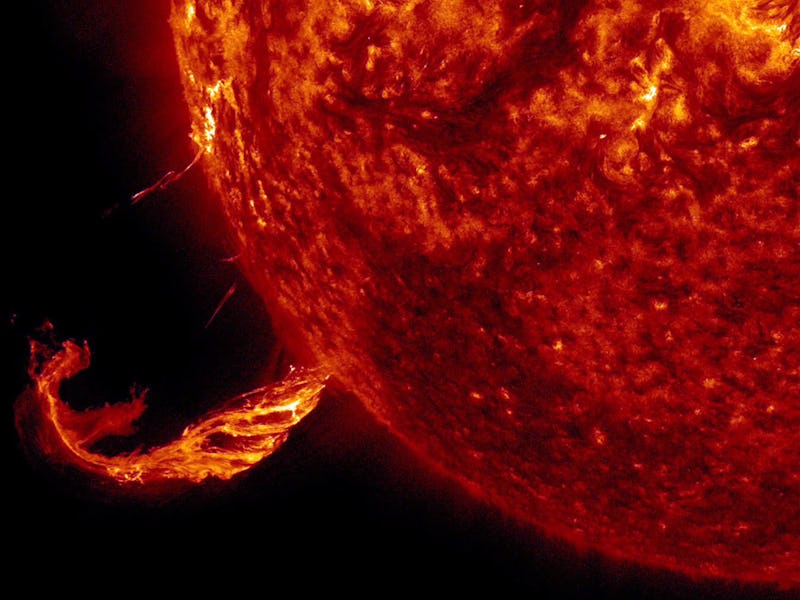Sad: This Upcoming Magnetic Storm Won't Bring the Apocalypse
What an unimpressive solar disturbance.

As a species, we don’t ask for much. A little air to breathe, a little food to eat, the occasional gigantic magnetic storm to rip across the planet and fry all electrical equipment, resetting civilization to zero. You know, the little things. It’s what keeps life interesting.
But sadly, the magnetic storm headed Earth’s way on Wednesday and Thursday isn’t nearly so apocalyptic, though it should still have some cool effects for observers in the higher latitudes. According to the National Oceanic and Atmospheric Administration’s Space Weather Prediction Center, the oncoming storm is only a minor one, the result of the sun ejecting high-speed particles that interact with our planet’s magnetic field.
Join our private Dope Space Pics group on Facebook for more strange wonder.
The effects should be relatively small, including a few potential disruptions to power grids and satellite operations. Those living in Canada and the most northerly parts of the United States like Michigan and Maine might have a better than normal chance of taking in the Aurora Borealis. None of that is really a good consolation prize for failing to unleash a real-life version of Cormac McCarthy’s The Road, but ah well.
As Inverse previously reported during last month’s similar G1 solar storm, it’s certainly possible for even relatively mild magnetic disturbances to have major effects on Earth. A March 1989 storm left six million people in Quebec in an hours-long blackout, though that was in part the result of a hugely unlikely combination of factors involving the province’s uniquely rocky geology and the power plant’s unusually long power lines.
But sufficiently powerful magnetic storms do have the potential to rip apart our high-tech society. So far, we’ve been lucky that such storms haven’t happened since the 19th century, when the worst impacts were some nasty electric shocks for telegraph operators. A storm as bad as 1859’s Carrington Event could be enough to trigger a global blackout.
None of that may seem likely, but a 2012 estimate suggested there was as much as a one in eight chance of a catastrophic solar storm by 2020. We’re nearly out of that particular date range, but still… what started as a silly goof about an apocalyptic magnetic storm has become disquietingly serious. Maybe let’s all just head north and enjoy the aurora while we can.